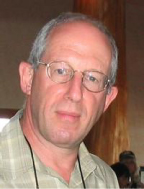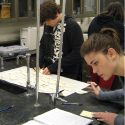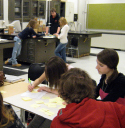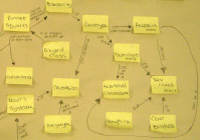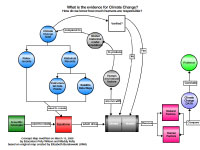In addition to being a Maury Educator and a COSEE educator, Bryan Field is a veteran high school science teacher
in New Hampshire with more than ten years of teaching experience who currently teaches classes in physics, biological and marine sciences.
He has a scientific background- a master's degree in oceanography - which he still draws strongly upon in his teaching practice today.
He reports that he weekly introduces current scientific research to his students via access to Google News, Discover and Scientific
American journals. Bryan has attended two COSEE-Ocean Systems workshops: Teaching Physical Science Through Ocean Inquiry and the
Scientist-Educator Collaborative Workshop at the University of New Hampshire in March 2009.
In preparation for later workshops, Bryan and the other educator participants were asked by COSEE-OS staff to rate specific Ocean and
Climate Literacy Principles in terms of the "relevancy level" to their teaching situations, and their "comfort level" with the content of
the principles. Bryan specifically commented on the Climate Principle addressing carbon cycling and its affects on climate change:
he and his students, "spend a lot of time working on the impact of humanity in the sea-covering climate change topics through
biogeochemical cycling, carbon dioxide build-up, removal by algae, ocean acidification..." To help with these complex topics,
Bryan enjoys encouraging his students to think of "systems ramifications" - how do all the parts of the ocean and climate systems
link together at different spatial and temporal scales?

